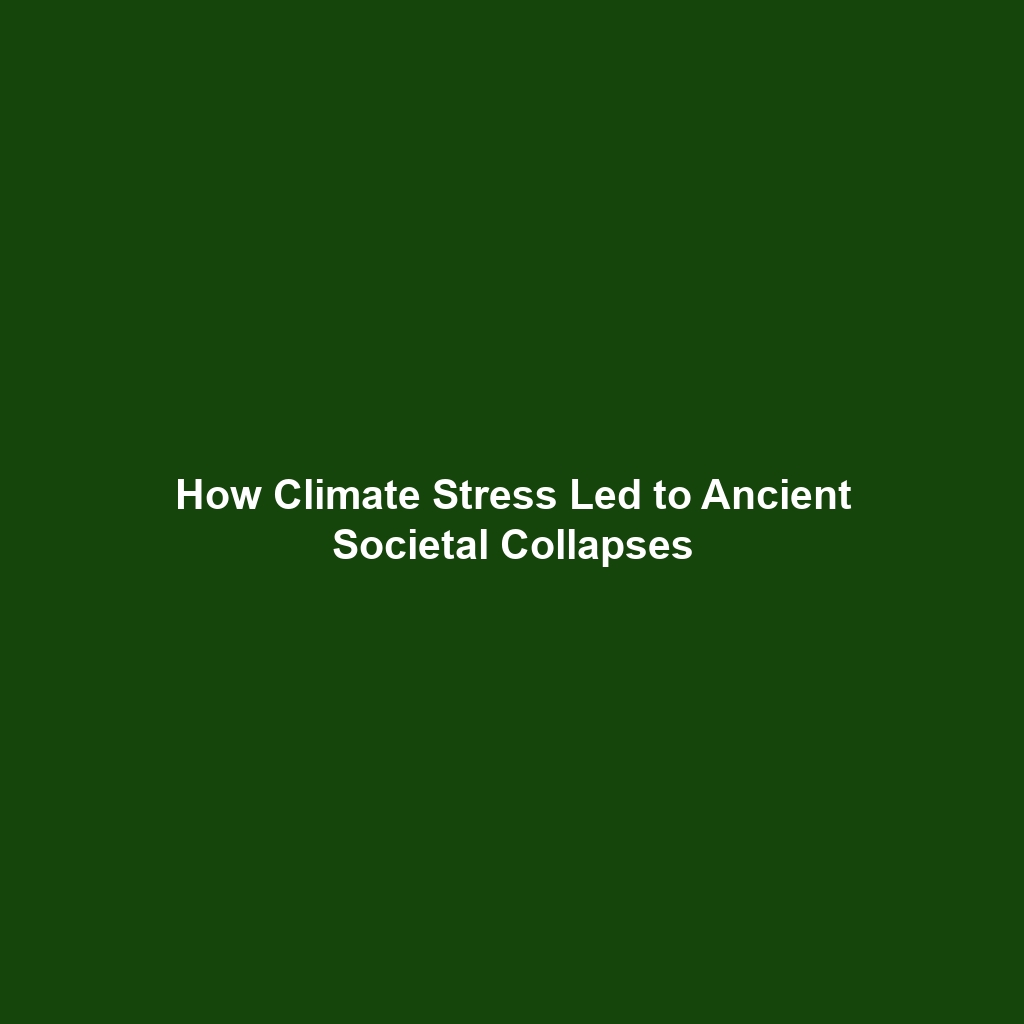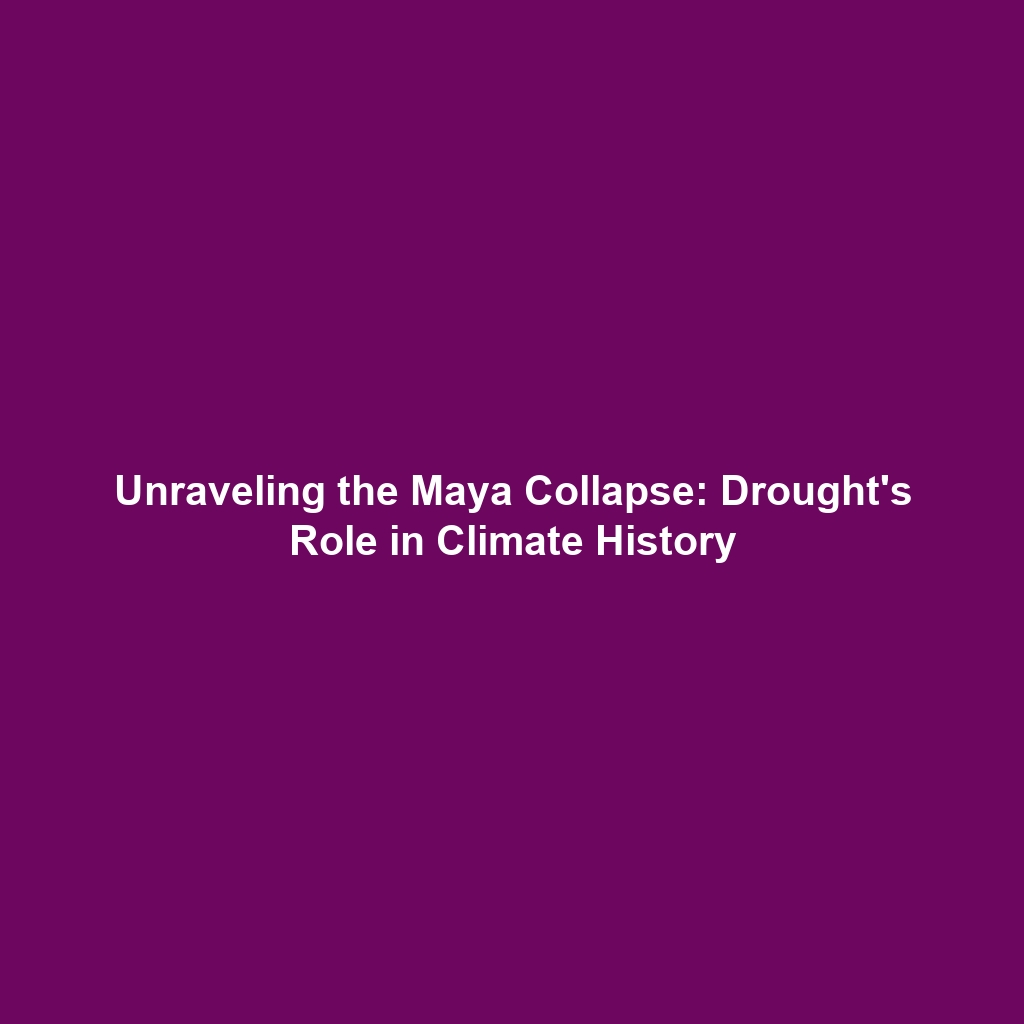Historical Case Studies Linking Climate Stress to the Collapse of Societies
Introduction
The study of historical case studies linking climate stress to the collapse of societies provides crucial insights into how environmental changes impact civilizations. Understanding these connections enhances our knowledge of Climate History and the fragility of human societies in the face of climate variability. By examining examples from the past, we can learn valuable lessons applicable to today’s global climate challenges.
Key Concepts
Central to the discourse on Historical case studies linking climate stress to the collapse of societies are several key concepts:
- Vulnerability of Societies: Different societies exhibit varying degrees of resilience to climate stress, influenced by their governance structures, technological advancements, and social cohesion.
- Environmental Degradation: The depletion of natural resources, such as deforestation and soil depletion, often precedes societal collapse as it amplifies climate stress.
- Historical Precedents: Case studies, such as the fall of the Mayan civilization and the decline of the Roman Empire, showcase how climate factors like prolonged droughts contributed to societal failures.
These concepts illustrate how Historical case studies enhance our understanding of Climate History, offering critical lessons relevant to contemporary environmental issues.
Applications and Real-World Uses
Understanding how Historical case studies linking climate stress to the collapse of societies informs modern applications is vital:
- Policy Development: Insights gained help policymakers craft sustainability initiatives to mitigate adverse climate impacts.
- Disaster Preparedness: Historical analogs equip nations to prepare for potential climate-induced societal disruptions.
- Academic Research: This field stimulates ongoing research in climate science and anthropology, emphasizing the role of climate stress in societal dynamics.
Real-world uses of historical case studies in Climate History allow us to comprehend past failures and build a robust strategy for future resilience.
Current Challenges
Despite the significance of these studies, several challenges and limitations exist:
- Data Limitations: Incomplete or biased historical records can obscure the true relationship between climate stress and societal collapse.
- Interdisciplinary Approach: Integrating knowledge from various fields such as archaeology, history, and climate science poses methodological difficulties.
- Public Perception: Misunderstandings about the implications of historical climate impacts can lead to insufficient public awareness and policy action.
These challenges highlight the need for a careful approach in studying how climate stress historically affected societal resilience within Climate History.
Future Research and Innovations
The future of research into Historical case studies linking climate stress to the collapse of societies looks promising:
- Advanced Climate Modelling: Innovations in climate models allow for better predictions of how future climate scenarios may affect societies.
- Multi-Disciplinary Research: Collaborative efforts among historians, scientists, and policymakers can lead to more comprehensive studies.
- Archaeological Technologies: New excavation and analysis technologies enhance our ability to gather and interpret historical climate data.
These advancements will promote a clearer understanding of climate impacts on societal dynamics in Climate History and improve our preparedness for future climate challenges.
Conclusion
In summary, examining historical case studies linking climate stress to the collapse of societies reveals invaluable lessons relevant to Climate History. As we confront ongoing climate challenges, it is essential to reflect on past societal responses and adapt our strategies accordingly. For those interested in further exploration, consider reading about the impact of climate change on contemporary societies or the role of biodiversity in maintaining ecological balance.

